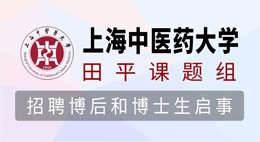当前位置:
X-MOL 学术
›
Med. Sci. Sports Exercise
›
论文详情
Our official English website, www.x-mol.net, welcomes your
feedback! (Note: you will need to create a separate account there.)
Screening for Relative Energy Deficiency in Sport: Detection of Clinical Indicators in Female Endurance Athletes.
Medicine & Science in Sports & Exercise ( IF 4.1 ) Pub Date : 2025-01-09 , DOI: 10.1249/mss.0000000000003644
Paulina Wasserfurth,Robin Halioua,Désirée Toepffer,Zoë Lautz,Helena Engel,Anna Katarina Melin,Monica Klungland Torstveit,Malte Christian Claussen,Karsten Koehler
Medicine & Science in Sports & Exercise ( IF 4.1 ) Pub Date : 2025-01-09 , DOI: 10.1249/mss.0000000000003644
Paulina Wasserfurth,Robin Halioua,Désirée Toepffer,Zoë Lautz,Helena Engel,Anna Katarina Melin,Monica Klungland Torstveit,Malte Christian Claussen,Karsten Koehler
PURPOSE
The purpose was to evaluate the individual and combined use of the Low Energy Availability in Females Questionnaire (LEAF-Q) and the Brief Eating Disorder in Athletes Questionnaire (BEDA-Q) to detect clinical indicators associated with Relative Energy Deficiency in Sport (REDs).
METHODS
In this cross-sectional study, 50 female endurance athletes training ≥4x/week completed the LEAF-Q and BEDA-Q and were assessed for presence of selected REDs indicators. Athletes meeting the criteria for mild or more severe REDs severity/risk according to the International Olympic Committee REDs Clinical Assessment Tool Version 2 (IOC REDs CAT2) were classified as REDs cases. Diagnostic properties of the German versions of the LEAF-Q and BEDA-Q were assessed at different cut-offs using receiver operating characteristics calculations.
RESULTS
Fourteen (28%) athletes were classified as REDs cases. The LEAF-Q had a sensitivity of 79% and a specificity of 50%, with a positive predictive value (PPV) of 38% and negative predictive value (NPV) of 86%. For detection of disordered eating behaviour/eating disorder (DE/ED), the BEDA-Q showed a sensitivity and specificity of 71% and 76%, respectively, with a PPV of 68% and NPV of 79%. Out of 14 REDs cases, nine (64%) scored positive in the LEAF-Q and BEDA-Q. Two athletes (14%) scored positive only in the LEAF-Q and one athlete scored positive only in the BEDA-Q. Two REDs cases remained undetected by both questionnaires.
CONCLUSIONS
Among German female endurance athletes, the LEAF-Q and BEDA-Q are good screening tools to detect REDs cases with mild or more severe severity/risk as classified according to the IOC REDs CAT2. Further clinical assessments should be initiated when athletes score positive in at least one of the questionnaires.
中文翻译:

运动中相对能量不足的筛查:女性耐力运动员临床指标的检测。
目的 目的是评估女性低能量可用性问卷 (LEAF-Q) 和运动员简短饮食失调问卷 (BEDA-Q) 的单独和联合使用,以检测与运动中的相对能量缺乏 (REDs) 相关的临床指标。方法 在这项横断面研究中,50 名训练≥ 4 次/周的女性耐力运动员完成了 LEAF-Q 和 BEDA-Q,并评估了是否存在选定的 REDs 指标。根据国际奥林匹克委员会 REDs 临床评估工具第 2 版 (IOC REDs CAT2) 符合轻度或更严重 REDs 严重程度/风险标准的运动员被归类为 REDs 病例。使用受试者操作特性计算在不同临界值评估德国版 LEAF-Q 和 BEDA-Q 的诊断特性。结果 14 例 (28%) 运动员被归类为 REDs 病例。LEAF-Q 的敏感性为 79%,特异性为 50%,阳性预测值 (PPV) 为 38%,阴性预测值 (NPV) 为 86%。对于饮食行为障碍/饮食失调 (DE/ED) 的检测,BEDA-Q 的敏感性和特异性分别为 71% 和 76%,PPV 为 68%,NPV 为 79%。在 14 例 REDs 病例中,9 例 (64%) 在 LEAF-Q 和 BEDA-Q 中得分为阳性。两名运动员 (14%) 仅在 LEAF-Q 中得分为阳性,一名运动员仅在 BEDA-Q 中得分为阳性。两份问卷均未发现 2 例 REDs 病例。结论 在德国女子耐力运动员中,LEAF-Q 和 BEDA-Q 是很好的筛查工具,可以检测根据 IOC REDs CAT2 分类的轻度或更严重严重程度/风险的 REDs 病例。当运动员在至少一份问卷中得分为阳性时,应开始进一步的临床评估。
更新日期:2025-01-09
中文翻译:

运动中相对能量不足的筛查:女性耐力运动员临床指标的检测。
目的 目的是评估女性低能量可用性问卷 (LEAF-Q) 和运动员简短饮食失调问卷 (BEDA-Q) 的单独和联合使用,以检测与运动中的相对能量缺乏 (REDs) 相关的临床指标。方法 在这项横断面研究中,50 名训练≥ 4 次/周的女性耐力运动员完成了 LEAF-Q 和 BEDA-Q,并评估了是否存在选定的 REDs 指标。根据国际奥林匹克委员会 REDs 临床评估工具第 2 版 (IOC REDs CAT2) 符合轻度或更严重 REDs 严重程度/风险标准的运动员被归类为 REDs 病例。使用受试者操作特性计算在不同临界值评估德国版 LEAF-Q 和 BEDA-Q 的诊断特性。结果 14 例 (28%) 运动员被归类为 REDs 病例。LEAF-Q 的敏感性为 79%,特异性为 50%,阳性预测值 (PPV) 为 38%,阴性预测值 (NPV) 为 86%。对于饮食行为障碍/饮食失调 (DE/ED) 的检测,BEDA-Q 的敏感性和特异性分别为 71% 和 76%,PPV 为 68%,NPV 为 79%。在 14 例 REDs 病例中,9 例 (64%) 在 LEAF-Q 和 BEDA-Q 中得分为阳性。两名运动员 (14%) 仅在 LEAF-Q 中得分为阳性,一名运动员仅在 BEDA-Q 中得分为阳性。两份问卷均未发现 2 例 REDs 病例。结论 在德国女子耐力运动员中,LEAF-Q 和 BEDA-Q 是很好的筛查工具,可以检测根据 IOC REDs CAT2 分类的轻度或更严重严重程度/风险的 REDs 病例。当运动员在至少一份问卷中得分为阳性时,应开始进一步的临床评估。































 京公网安备 11010802027423号
京公网安备 11010802027423号